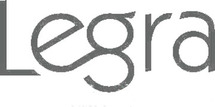Dealing with the client
In order to offer good insurance advice, it is crucial that the insurance broker understands, as far as possible, the risks to which the client is exposed and suggests appropriate policies to cover those risks. However, insurance against all risks may be unnecessary or such insurance should not be contracted if the price is higher than the client's ability to pay.
If exposure to a particular risk would result in a loss of money that could be covered by the client's daily inflows, then it may not be necessary to insure such a risk. Insurance can still be concluded if the Insurer will provide additional services to the client that are of particular importance to him. This may include helping to settle general liability claims, for example, or providing risk recording in building insurance. It should also be remembered that some insurances are required by law: third-party liability insurance for motor vehicles or aircraft...
These comments may seem appropriate only for large industrial or commercial clients and not applicable to simple standard insurance policies such as home appliance insurance policies. But it's not like that. How often do you see all risk policies with inadequate coverage for valuables? Or what about people who own valuable collections of postage stamps? Has his collection been properly valued and properly insured?
It is important that large damages are fully and well covered and that the premium on risk coverage that the client can pay from his own sources of funds is not wasted.
Communication between the insurance broker and the client is vital. An insurance broker must fully understand the terms of the insurance policy and be able to explain them clearly to the client; he must be sure that his client understands exactly what is and is not covered by the insurance policy.
It is also important to take out appropriate insurance carefully.
It is equally important to ensure that the client is aware of any coverage limitations.
With individual and family life insurance, the client is rarely familiar with the insurance coverage and therefore it is the task of the insurance broker to select the appropriate coverage from the multitude of standard coverages offered. Again, the insurance broker must pay attention to the special requirements of the client (stamp collector or family life insurance.
A similar philosophy can be applied to small businesses where the multitude of insurance packages offered on the market can be applied.
For larger clients, risk exposure should be analyzed and an appropriate risk management and insurance plan should be prepared.
Exposure to risk can be viewed by the following items:
a) loss or damage to property
b) financial losses caused by loss, damage or interruption of business
c) Liability to third parties under the law, company statute or contract.
d) responsibility towards employees
It is important to keep a written record of every telephone conversation with the client or insurer and then provide written confirmation of each such conversation.
If the insurance is contracted, without issuing a policy, it is of crucial importance to provide a written confirmation from the insurer / cover sheet and adequately inform the client about it. Such cover sheet to the client should contain all special conditions together with a statement that identical cover will be provided by the policy when it is issued. Every effort should be made to deliver the signed policy to the client as soon as possible.
The insurance broker's responsibility to the client does not end with the client being introduced to the breadth of coverage he needs. The client's needs change and therefore it is necessary to stay in contact with the client in order to respond to the changed circumstances.
When damage occurs ... until the client / insured submits a claim for damage compensation, he does not see the result of the insurance he paid for. When this happens, they will expect and have the right to immediate professional help from a mediator. He needs help filling out the claim and how to deal with the insurer, their experts and loss assessors.
The limitations and exclusions of the policy should already be fully explained to the client. However, the insurance intermediary should make sure that everything is clarified and take an active part in protecting the interests of the client, regardless of whether or not he participated in the insurance contract.













